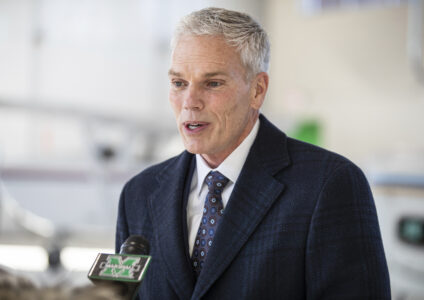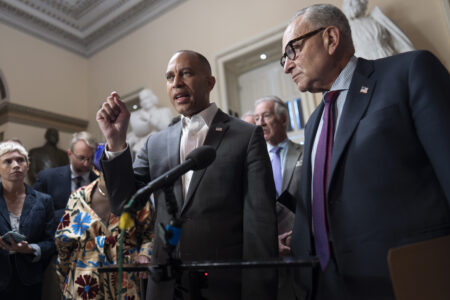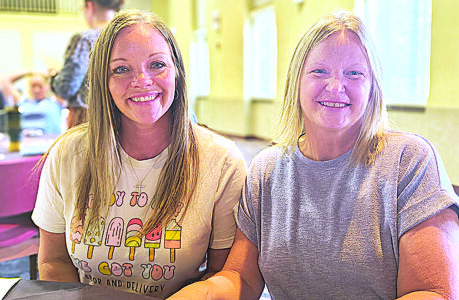West Virginia Will Apply for Federal Rural Health Transformation Dollars
CHARLESTON — Gov. Patrick Morrisey said West Virginia will apply for federal dollars made possible by President Donald Trump’s Big Beautiful Bill for rural hospitals and health care access.
U.S. Department of Health and Human Services Secretary Robert F. Kennedy Jr. and Centers for Medicare and Medicaid Administrator Dr. Mehmet Oz announced Monday morning that the application process for the Rural Health Transformation Program was now open.
The $50 billion program is made possible by the One Big Beautiful Bill Act, now called the Working Families Tax Cuts Act, which was passed by Congress and signed into law by Trump in July.
The Rural Health Transformation Program will provide $10 billion a year to states each federal fiscal year from 2026, which begins Oct. 1, through 2030. Half of the available funding would be distributed evenly to all 50 states, if they apply for it. The other half would be distributed based on health care metrics in an effort to direct the money where itwould do the most good.
The program is structured around several goals: funding for innovations in rural areas that focus on preventative care and reduce disease, helping rural providers improve their efficiency and long-term sustainability, retaining and attracting doctors and nurses to rural areas, creating innovative care models and using technology to improve rural health care outcomes.
The deadline for states to apply for the Rural Health Transformation Program is less than two months away, with applications due by Wednesday, Nov. 5. Speaking Monday afternoon at a press availability in Beckley, Morrisey said the state was reviewing the application process.
“It is my intent to submit that, to follow through with that application,” Morrisey said. “We’re seeking to meet with all interested people, the public, health care providers, legislators, others, before we get our response to the application in less than two months.
“This is coming really, really fast, but we’re going to be working hard to get this together,” Morrisey continued. “We want to have a transformative impact on rural health care outcomes in the state.”
According to the West Virginia Hospital Association, West Virginia has 21 critical access hospitals, a designation provided by the Centers for Medicare & Medicaid Services to hospitals that are rural, provide 24-hour emergency services and more than 35 miles away from another hospital (or 15 miles in mountainous areas or when only secondary roads are available).
According to a report from the Center for Healthcare Quality and Payment Reform, as many as 12 of West Virginia’s 69 hospitals are at risk of closure, with another five hospitals at immediate risk of closure over the next several years.
The report cites financial losses from certain patient services and insufficient revenues from other sources as the major burdens on hospitals and rural health care providers.
“More than 700 rural hospitals — one-third of all rural hospitals in the country — are at risk of closing because of the serious financial problems they are experiencing,” the report’s authors wrote. “Over 300 of these rural hospitals are at immediate risk of closing because of the severity of their financial problems.”
In West Virginia, older residents are served Medicare, low-income residents are served by Medicaid, and their children are served by the Children’s Health Insurance Program. State workers and their families, as well as some city and county public employees, are served by the Public Employees Insurance Agency. All four programs reimburse hospitals and health care providers below the actual cost for services.
The One Big Beautiful Bill Act introduced stricter oversight and eligibility requirements for Medicaid, the Affordable Care Act, CHIP and the Supplemental Nutrition Assistance Program. One estimate from the Congressional Budget Office estimated that more than 11 million people could lose health care coverage provided by Medicaid and the Affordable Care Act expansion due to changes made by the bill.
An analysis by the Kaiser Family Foundation estimated approximately 50,000 West Virginians could lose Medicaid coverage under the bill’s provisions, with another 3,600 losing coverage due to proposed ACA changes. In West Virginia, 464,821 people were enrolled in Medicaid, with CHIP enrollment at 40,445.
Morrisey said Monday that it was important for the state to send in a thorough application to ensure West Virginia does not miss out on needed rural health care funding.
“Rural health care matters a great deal here,” Morrisey said. “It matters in Charleston, it matters in Parkersburg, in Wheeling, in Hancock County, Marion County, the Eastern Panhandle, all across the wonderful state of West Virginia.
“Virtually every county is a rural county, so if anyone is listening across the state in any one of the 55 counties, know that we’re going to be working hard to put a response to that application together to try to access these important federal funds to really move forward from a health care perspective,” Morrisey continued.





